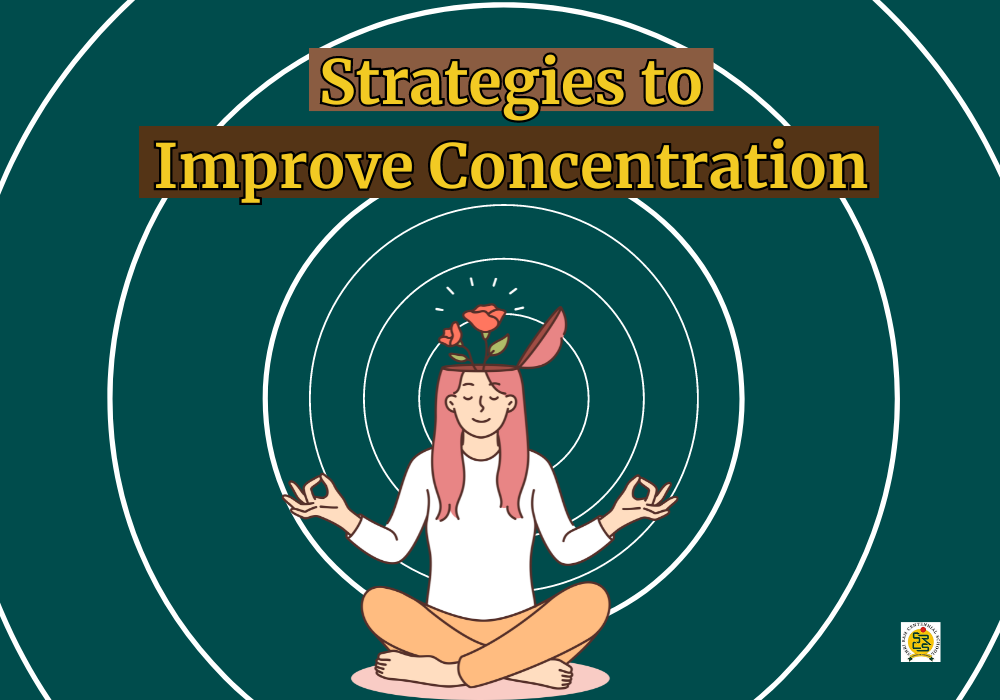As a student in schools in Dehradun, maintaining focus and concentration is crucial for achieving academic success. However, with numerous distractions and decreased attention spans, improving concentration has become a significant challenge. In this article, we will explore the top strategies to improve concentration in students, helping them stay focused and achieve their academic goals.
The Importance of Concentration

Concentration is the ability to focus on a task without getting distracted. Students need to develop good concentration skills to:
- Improve academic performance: When students can concentrate, they absorb information more effectively and perform better in exams and assignments.
- Enhance learning and retention: Focused attention helps students understand and retain the material for longer periods, making it easier to recall information when needed.
- Increase productivity: Improved concentration allows students to complete tasks more efficiently, freeing up time for other activities and reducing the need for last-minute cramming.
- Reduce stress and anxiety: By staying focused and managing their time well, students can avoid the stress and anxiety associated with falling behind in their studies.
- Achieve better time management: Concentration helps students stick to their study schedules, ensuring that they allocate sufficient time to each subject and balance their academic and personal lives.
Strategies to Improve Concentration

Here are the top strategies to improve concentration in students:
1. Set Clear Goals and Priorities
Setting clear goals and priorities helps students focus on what’s important, reducing distractions and increasing motivation. When students know exactly what they need to achieve, it becomes easier to direct their attention to those tasks.
Breaking down larger goals into smaller, manageable tasks can also improve concentration and provide a sense of accomplishment as each task is completed.
2. Create a Conducive Study Environment
A quiet, comfortable, and clutter-free study space helps students stay focused and avoid distractions. The environment where students study plays a significant role in their ability to concentrate. Ensuring that the study area is well-lit, organized, and free from noise and other interruptions can make a big difference in their ability to maintain focus.
3. Develop a Pre-Study Routine
A consistent pre-study routine signals the brain that it’s time to focus, improving concentration and reducing procrastination. Simple activities such as organizing study materials, reviewing the study plan, and doing a quick mental or physical warm-up can prepare the brain for focused work. Over time, these routines can condition the mind to switch into a concentration mode more quickly and efficiently.
4. Use the Pomodoro Technique
This technique involves working in focused 25-minute increments, followed by a 5-minute break, to maintain concentration and reduce burnout. The Pomodoro Technique helps in breaking down study sessions into manageable intervals, which can prevent mental fatigue and keep students engaged. After completing four cycles, students can take a longer break of 15-30 minutes to rest and recharge.
5. Practice Mindfulness and Meditation
Regular mindfulness and meditation practice improves attention, reduces stress, and increases focus. Mindfulness techniques, such as deep breathing and progressive muscle relaxation, can help students clear their minds and stay present in their studies. Meditation can train the brain to maintain concentration over longer periods and manage stress more effectively.
6. Limit Digital Distractions
Reducing digital distractions, such as turning off notifications or using website blockers, helps students stay focused on their tasks. With the constant influx of notifications from smartphones, social media, and other digital devices, it’s easy for students to get sidetracked. By minimizing these distractions, students can create a more focused and productive study environment.
7. Take Regular Breaks
Regular breaks help students recharge, reduce eye strain, and maintain concentration. Short breaks during study sessions allow the brain to rest and prevent burnout. Activities like stretching, taking a walk, or simply stepping away from the study area for a few minutes can refresh the mind and improve focus when returning to study.
8. Exercise Regularly
Regular exercise improves blood flow to the brain, boosting focus, concentration, and overall cognitive function. Physical activity releases endorphins and reduces stress, which can enhance a student’s ability to concentrate. Incorporating activities like yoga, running, or team sports into the daily routine can contribute significantly to better focus and mental clarity.
9. Get Enough Sleep
Adequate sleep is essential for brain function, memory consolidation, and maintaining concentration. Sleep deprivation can lead to decreased cognitive abilities, poor memory, and difficulty concentrating. Students should aim for 8-10 hours of sleep each night to ensure their brains are well-rested and capable of sustained focus.
10. Stay Hydrated and Energized
Drinking plenty of water and eating nutritious food helps maintain focus, concentration, and productivity. Dehydration can lead to fatigue and decreased mental alertness, making it harder to concentrate. A balanced diet that includes a variety of fruits, vegetables, whole grains, and proteins can provide the necessary nutrients to keep the brain functioning optimally.
Conclusion
Improving concentration is a skill that can be developed with practice, patience, and persistence. By implementing these top strategies, students can enhance their focus, achieve better academic success, and reduce stress and anxiety. Creating a conducive study environment, setting clear goals, practicing mindfulness, and ensuring proper nutrition and sleep are just a few ways to improve concentration.
With dedication and effort, students can unlock their full academic potential and enjoy a more rewarding educational experience.










